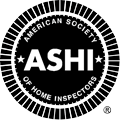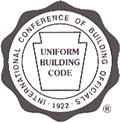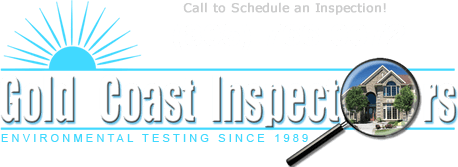Overview of Real Estate Inspection Law in California

Other sections of this law contain provisions similar to those in the CREIA Code of Ethics, including prohibitions on repairing properties on which an inspection was performed in the last 12 months, accepting kickbacks, and on payment of referral fees to agents. The law also has a 4-year statute of limitations on the inspector’s liability, beginning with the date of the inspection.
This law and others can be viewed on the web at www.leginfo.ca.gov. From the main menu of that website, click on “California Law.” On the next menu, check the box for the Business and Professions Code, enter 7195, and click on “Search.”
B&P 7195 was altered in 2001, and now includes language indicating that a home inspector may provide energy information as part of the inspection. The law that created those changes was Assembly Bill 1574. It also includes a provision mentioning home inspectors in the Public Resources Code. Section 25401.7 of that code and states that inspectors shall provide contact information on home energy for a nonprofit organization, a utility provider, or a government agency such as the State Energy Resources Conservation and Development commission.
Another important section of relevant law is found in the Civil Codes. Section 1102 contains the information regarding required disclosure by sellers and agents, and the language for the Real Estate Transfer Disclosure Statement. Section 1102.4 contains a provision whereby an expert can relieve the seller and agent of liability by providing “substitute disclosure” within the area of their expertise. The named types of experts include licensed engineers, land surveyors, geologists, structural pest control operators, contractors, or “other expert.” The California Coalition of Home Inspectors (CCHI) has long been at odds with the California Association of Realtors (CAR) over the wording of this section. One point of contention in the discussions surrounding SB 1332 in the 2002 legislative session was the proposed re-wording of this section to include Certified Home Inspectors, and to make other clarifications regarding the expert’s need to specify their intent that the report be used as substitute disclosure.
In addition to these pieces of legislation, there is also another body of law referred to as case law, wherein the interpretations of a court are found to have the effect of law. Perhaps the most historically significant example of such a law was the Easton decision in 1984, which spawned the disclosure requirements we now have in California.
History of Home Inspector Legislation:
Though there is no formal state-sponsored licensing of inspectors in California, there have been numerous pieces of legislation affecting inspectors over the last 2 decades. One of the key steps in regulating any business is a “Sunrise Study” which describes the business in question and addresses the need for regulation. There have been 3 sunrise studies on the home inspection business. The first study, widely discredited, was created in 1986. The next study was created by the California Association of Realtors in 1994. The third study was created by the California Coalition of Home Inspectors as part of the process for SB 1216 in 1999.
There are numerous other laws pertaining to real estate, contracting, small businesses, and building codes that all affect real estate inspection businesses. The California Coalition of Home Inspectors (CCHI) monitors legislation in all those areas, and reports to the CREIA membership through the Inspector magazine and through the local chapter representatives. The CCHI also maintains a highly effective lobbying presence in the Capitol. CCHI and CREI-PAC (the political action committee for home inspectors) are funded by your voluntary contributions.
The status and text of current bills can be viewed at www.leginfo.ca.gov
California Business & Professions Code — Home Inspectors
The people of the State of California do enact as follows:
SECTION 1. It is the intent of the Legislature in enacting this act to assure that consumers of home inspection services can rely upon the competence of home inspectors. It is the intent of the Legislature that, in ascertaining the degree of care that would be exercised by a reasonably prudent home inspector pursuant to Section 7196 of the Business and Professions Code, the court may consider the standards of practice and code of ethics of the California Real Estate Inspection Association, the American Society of Home Inspectors, or other nationally recognized professional home inspection associations.
EC. 2. Chapter 9.3 (commencing with section 7195) is added to Division 3 of the Business and Professions Code, to read:
Useful Links:
Chapter 9.3. HOME INSPECTORS 7195.
For purposes of this chapter, the following definitions apply:
(a) “Home inspection” is a noninvasive, physical examination, performed for a fee in connection with a transfer, as defined in subdivision (e), of real property, of the mechanical, electrical, or plumbing systems or the structural and essential components of a residential dwelling of one to four units designed to identify material defects in those systems, structures and components. “Home inspection” also includes any consultation regarding the property that is represented to be a home inspection or any confusingly similar term.
(b) A “material defect” is a condition that significantly affects the value, desirability, habitability, or safety of the dwelling. Style or aesthetics shall not be considered in determining whether a system, structure, or component is defective.
(c) A “home inspection report” is a written report prepared for a fee and issued after a home inspection. The report clearly describes and identifies the inspected systems, structures, or components of the dwelling, any material defects identified, and any recommendations regarding the conditions observed or recommendations for evaluation by appropriate persons.
(d) A “home inspector” is any individual who performs a home inspection.
(e) “Transfer” is a transfer by sale, exchange, installment land sale contract, as defined in Section 2985 of the Civil Code, lease with an option to purchase, any other option to purchase, or ground lease coupled with improvements, of real property or residential stock cooperative, improved with or consisting of not less than one nor more than four dwelling units.
7196. It is the duty of a home inspector who is not licensed as a general contractor, structural pest control operator, or architect, or registered as a professional engineer to conduct a home inspection with the degree of care that a reasonably prudent home inspector would exercise.
7196.1. (a) Nothing in this chapter shall be construed to allow home inspectors who are not registered engineers to perform any analysis of the systems, components, or structural integrity of a dwelling that would constitute the practice of civil, electrical, or mechanical engineering, or to exempt a home inspector from chapter 3 (commencing with Section 5500), Chapter 7 (commencing with Section 6700), Chapter 9 (commencing with Section 7000), or Chapter 14 (commencing with Section 8500) of Division 3.
(b) This chapter does not apply to a registered engineer, licensed land surveyor, or licensed architect acting pursuant to his or her professional registration or license, nor does it affect the obligations of a real estate licensee or transferor under Article 1.5 (commencing with Section 1102) of Chapter 2 of Title 4 of Part 3 of Division 2 of, or Article 2 (commencing with Section 2079) of Chapter 3 of Title 6 of Part 4 of Division 3 of, the Civil Code.
7197. It is an unfair business practice for a home inspector, a company that employs the inspector, or a company that is controlled by a company that also has a financial interest in a company employing a home inspector, to do any of the following:
(a) To perform or offer to perform, for an additional fee, any repairs to a structure on which the inspector, or the inspector’s company, has prepared a home inspection report in the past 12 months.
(b) Inspect for a fee any property in which the inspector, or the inspector’s company, has any financial interest or any interest in the transfer of the property.
(c) To offer or deliver any compensation, inducement, or reward to the owner of the inspected property, the broker, or agent, for the referral of any business to the inspector or the inspection company.
(d) Accept an engagement to make an inspection or to prepare a report in which the employment itself or the fee payable for the inspection is contingent upon the conclusions in the the report, preestablished findings, or the close of escrow.
(e) A home protection company that is affiliated with or that retains the home inspector does not violate this section if it performs repairs pursuant to claims made under the home protection contract.
7198. Contractual provisions that purport to waive the duty owed pursuant to Section 7196, or limit the liability of the home inspector to the cost of the home inspection report, are contrary to public policy and invalid.
7199. The time for commencement of a legal action for breach of duty arising from a home inspection report shall not exceed four years from the date of the inspection.
The text of the California Business & Professions Code — Home Inspectors can also be viewed by clicking here.
Gold Coast Inspectors has been in business since 1989, helping LA, Ventura, and Santa Barbara Counties with Building Analysis reports, and inspections of:
- Mold
- Pools & Spas
- Commercial and Residential Real Estate
Certifications & Affiliations:








